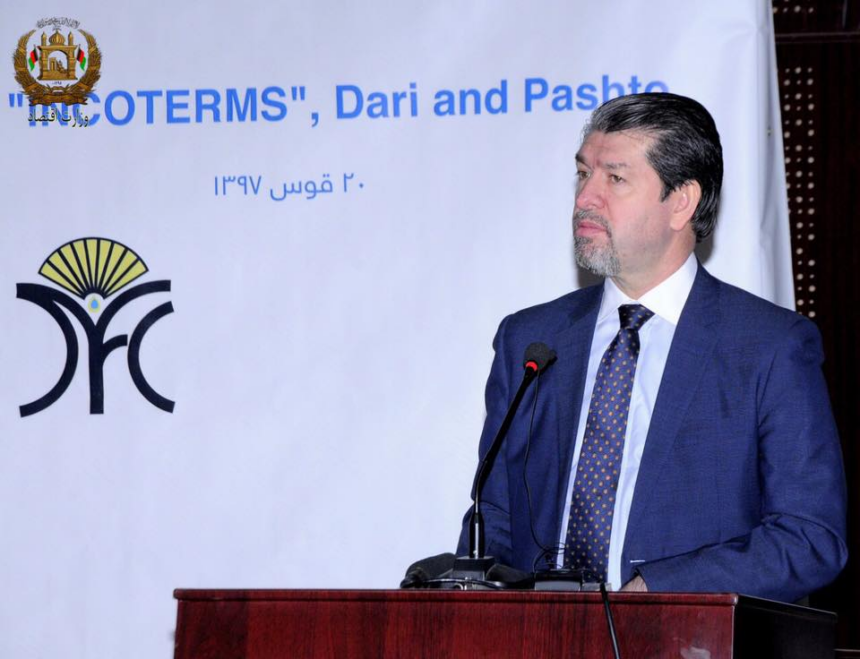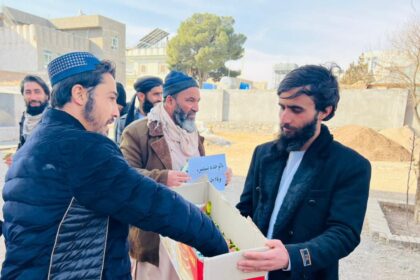RASC News Agency: Mustafa Mastoor, Afghanistan’s former Minister of Economy, has issued a stern rebuke of the United Nations’ newly proposed “Mosaic” framework, warning that the plan not only fails to offer a viable solution to Afghanistan’s ongoing crisis but also risks further empowering the Taliban’s ethnocentric and authoritarian rule under the pretense of international legitimacy. Speaking at the Antalya Diplomacy Forum on Monday, Mastoor argued that the so-called “Mosaic” initiative is structurally ill-conceived and morally ambiguous. “This proposal does not pave the way for a genuine inclusive government,” he said. “Instead, it lends international cover to a regime that has systematically silenced dissent, erased women from public life, and ruled through fear rather than consensus.”
The UN framework calls on the Taliban to meet three broad international expectations: adherence to human rights, a commitment to counter-terrorism, and the formation of an inclusive government. However, Mastoor pointed out that these demands are vaguely articulated, devoid of enforcement mechanisms, and presented in abstract terms that allow the Taliban to manipulate the language without accountability. In stark contrast, the Taliban’s own demands are concretely embedded in the proposal, including:
he immediate removal of international sanctions, the unconditional release of Afghanistan’s frozen financial assets, and the formal recognition of the Taliban regime as the legitimate representative of Afghanistan on the world stage particularly its bid to seize the country’s United Nations seat.
“The asymmetry in this document is alarming,” Mastoor emphasized. “While the Taliban’s goals are explicitly prioritized, the international community’s demands are diluted into diplomatic euphemisms. This imbalance dangerously rewards the Taliban for their repression rather than holding them to account.” He further noted that the plan, drafted based on a report by Feridun Sinirlioglu, the UN’s Special Coordinator for Afghanistan, appears to have been substantially altered in its final version shifting away from its original tone of cautious assessment and instead embracing concessions that critics say undermine resistance voices and embolden the Taliban’s monopolistic grip on power.
The proposal has already sparked an outcry among Afghanistani civil society activists, women’s rights defenders, and opposition figures. Critics have condemned the UN for legitimizing a regime that has orchestrated what many describe as a system of gender apartheid, ethnic exclusion, and ideological tyranny. The plan, they argue, makes no room for political pluralism and ignores the countless Afghanistani citizens particularly women, ethnic minorities, and secular voices who have been excluded from any dialogue. “Any international roadmap that omits the voices of the oppressed in favor of dialogue with their oppressors is not a peace plan it’s a betrayal,” one participant at the Antalya conference remarked.
The fourth round of the “Antalya Process,” which commenced on Monday, May 26, brought together Afghanistani diplomats, exiled activists, women leaders, and international experts. While the forum aimed to foster discussion on a future inclusive dialogue, many participants have expressed concern that the UN’s current approach risks cementing the Taliban’s violent status quo, rather than challenging it. Observers warn that legitimizing a regime responsible for systematic persecution, mass arrests, public floggings, and the eradication of women’s rights could have irreversible consequences for Afghanistan’s democratic future. Mastoor concluded with a stark warning: “Peace built on silence, exclusion, and submission is not peace it is a scaffold for future tyranny.”






